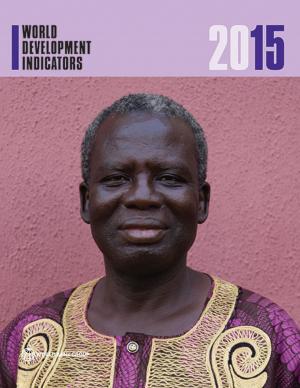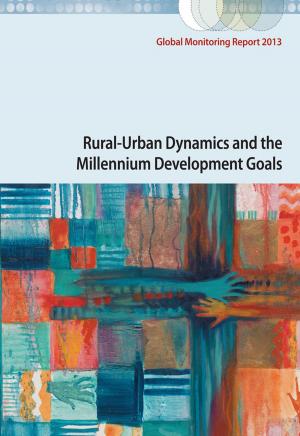World Development Report 2012: Gender Equality and Development
Business & Finance, Economics, Sustainable Development, Economic Development, Nonfiction, Social & Cultural Studies, Political Science, Government, Social Policy| Author: | World Bank | ISBN: | 9780821388129 |
| Publisher: | World Bank Publications | Publication: | September 22, 2011 |
| Imprint: | Language: | English |
| Author: | World Bank |
| ISBN: | 9780821388129 |
| Publisher: | World Bank Publications |
| Publication: | September 22, 2011 |
| Imprint: | |
| Language: | English |
The WDR 2012: Gender Equality and Development will focus on the evolution of gender equality across the world in the context of the development process. The report will consider gender equality as a core development goal in itself, and will argue that gender equality matters for the pace of development. Improvements in gender equality can generate gains in economic efficiency and improvements in other development outcomes. And gender equality has consequences for the quality and representativeness of the institutions a society develops. For key dimensions of gender equality, the report will show that although many women around the world still continue to struggle with gender-based disadvantages, much has changed for the better and at a more rapid pace than ever before. But the report will also show that progress needs to be expanded, protected and deepened. In order to understand why progress has varied across dimensions of gender equality and between countries, the report will look at how markets interact with formal and informal institutions to influence household decision-making by providing incentives, shaping preferences, or imposing constraints. Markets and institutions can combine to provide strong incentives for greater gender equality, but can also fail to do so if they treat males and females differentially. Policymakers and practitioners still face gaps in knowledge both in how gender equality matters for development and how best to incorporate these links in policy design. This WDR aims to bridge these gaps by building upon the growing body of multidisciplinary theory, evidence, and data on these links while highlighting the knowledge gaps that remain.
The WDR 2012: Gender Equality and Development will focus on the evolution of gender equality across the world in the context of the development process. The report will consider gender equality as a core development goal in itself, and will argue that gender equality matters for the pace of development. Improvements in gender equality can generate gains in economic efficiency and improvements in other development outcomes. And gender equality has consequences for the quality and representativeness of the institutions a society develops. For key dimensions of gender equality, the report will show that although many women around the world still continue to struggle with gender-based disadvantages, much has changed for the better and at a more rapid pace than ever before. But the report will also show that progress needs to be expanded, protected and deepened. In order to understand why progress has varied across dimensions of gender equality and between countries, the report will look at how markets interact with formal and informal institutions to influence household decision-making by providing incentives, shaping preferences, or imposing constraints. Markets and institutions can combine to provide strong incentives for greater gender equality, but can also fail to do so if they treat males and females differentially. Policymakers and practitioners still face gaps in knowledge both in how gender equality matters for development and how best to incorporate these links in policy design. This WDR aims to bridge these gaps by building upon the growing body of multidisciplinary theory, evidence, and data on these links while highlighting the knowledge gaps that remain.















